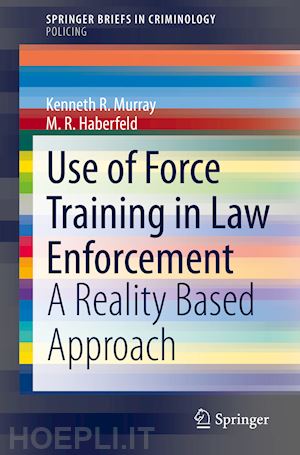
Questo prodotto usufruisce delle SPEDIZIONI GRATIS
selezionando l'opzione Corriere Veloce in fase di ordine.
Pagabile anche con Carta della cultura giovani e del merito, 18App Bonus Cultura e Carta del Docente
This Brief describes a reality based approach to use-of-force training in law enforcement, an area of growing importance. It explains what scenario-based training is, how it works to improve police-community relations, and provides a guide for how the training can be implemented. This brief will be of value to researchers working to understand the negative impact of use of force on police-community relations, and interested in alternative approaches that integrate academic research with tactical experience.
The traditional use-of-force training paradigm is based on relatively brief training sessions with high student-to-instructor ratios. In scenario-based training, officers listen to social science-based lectures, develop a set of scenarios to be tested in a training environment, and conclude with a debriefing session that brings together the theoretical with the practical, including the consequences of the shooting from the tactical, emotional, psychological, social, and economic angles. This work will be of interest to researchers in criminology, criminal justice, sociology, psychology and related fields, policy-makers, particularly with interest in police legitimacy and police-community relations, as well as practitioners in police organization and training.











Il sito utilizza cookie ed altri strumenti di tracciamento che raccolgono informazioni dal dispositivo dell’utente. Oltre ai cookie tecnici ed analitici aggregati, strettamente necessari per il funzionamento di questo sito web, previo consenso dell’utente possono essere installati cookie di profilazione e marketing e cookie dei social media. Cliccando su “Accetto tutti i cookie” saranno attivate tutte le categorie di cookie. Per accettare solo deterninate categorie di cookie, cliccare invece su “Impostazioni cookie”. Chiudendo il banner o continuando a navigare saranno installati solo cookie tecnici. Per maggiori dettagli, consultare la Cookie Policy.